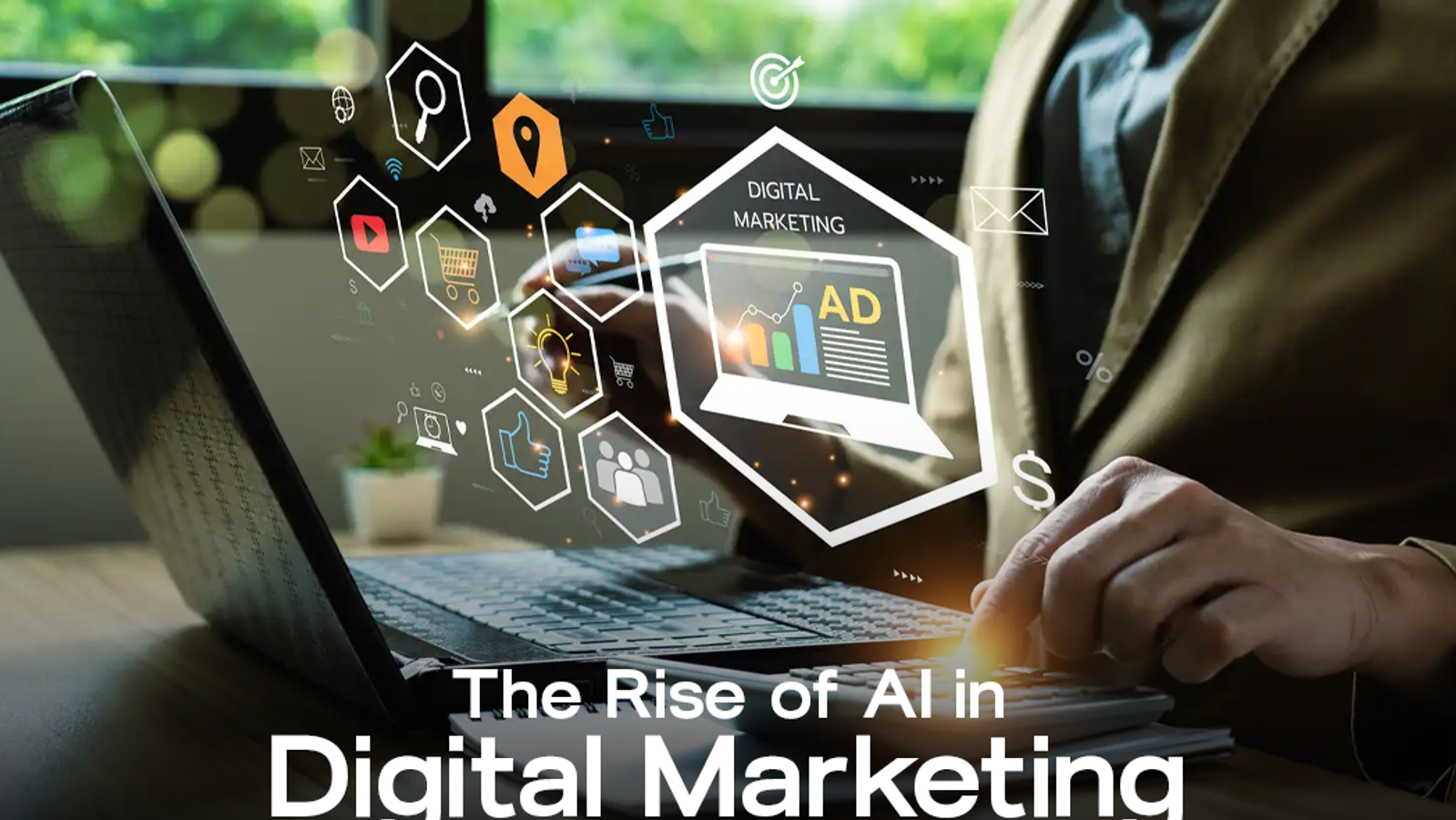Published: May 28, 2025 | By Alfie Carter

Introduction
In 2025, digital marketing is no longer confined to traditional strategies and manual processes. The integration of artificial intelligence (AI) into marketing campaigns has transformed the landscape, enabling brands to connect with audiences in more personalized, efficient, and data-driven ways. From predictive analytics to AI-generated content, marketers are now leveraging automation tools to make smarter decisions and achieve better results.
This blog explores how AI is reshaping digital marketing strategies in 2025 and offers practical insights on integrating AI into your campaigns.
1. Understanding AI in Digital Marketing
AI in digital marketing refers to the use of machine learning, natural language processing, and data analytics to automate and enhance marketing tasks. These technologies can analyze large datasets, recognize patterns, and make decisions with minimal human intervention.
Key AI Technologies in Use:
- Machine Learning: Algorithms that learn from data to improve performance over time.
- Natural Language Processing (NLP): Allows machines to understand and respond to human language.
- Predictive Analytics: Forecasts future outcomes based on historical data.
- Chatbots and Virtual Assistants: Automate customer service and lead generation.
- Image and Voice Recognition: Enables new forms of interaction and personalization.
2. Personalization at Scale
One of the most significant advantages of AI in marketing is the ability to personalize experiences for millions of users in real-time. AI tools analyze customer behavior, preferences, and demographics to deliver highly relevant content, recommendations, and offers.
Examples:
- Email Campaigns: AI tailors subject lines and content to each recipient.
- E-commerce: Product recommendations based on browsing and purchase history.
- Content Delivery: Dynamic website content that changes based on user behavior.
Impact:
- Increased engagement and conversion rates
- Higher customer satisfaction and loyalty
3. Smarter Ad Targeting and Optimization
AI-driven platforms like Google Ads and Facebook Ads now use machine learning to automate ad bidding, targeting, and performance optimization.
How It Works:
- AI analyzes user data to identify the best audience segments.
- It adjusts bids in real-time to maximize ROI.
- A/B testing is automated for creative and copy variations.
Benefits:
- Reduced ad spend waste
- Improved return on investment (ROI)
- More precise audience targeting
4. Predictive Analytics for Strategic Decision-Making
Predictive analytics enables marketers to forecast trends, customer behaviors, and campaign outcomes. This helps in making proactive decisions rather than reactive ones.
Applications:
- Predicting customer churn and taking preventive action
- Forecasting demand for products or services
- Optimizing content strategy based on engagement predictions
Tools in 2025:
- Salesforce Einstein
- Adobe Sensei
- IBM Watson Marketing
5. AI-Generated Content
Content creation is one of the most time-consuming marketing tasks. In 2025, AI tools like ChatGPT and Jasper are helping marketers generate blogs, ad copy, social media posts, and even video scripts.
Advantages:
- Speed and efficiency
- Cost-effective
- Consistent brand voice
Best Practices:
- Always review and human-edit AI-generated content
- Use AI as a collaborator, not a replacement
- Focus on adding unique insights and brand personality
6. Conversational Marketing and Chatbots
Chatbots powered by AI are now capable of holding intelligent, human-like conversations with customers. These bots are used on websites, social media platforms, and messaging apps.
Use Cases:
- Answering FAQs
- Assisting with product selection
- Booking appointments
- Collecting feedback
Benefits:
- 24/7 customer support
- Immediate response time
- Improved user experience
7. Ethical Considerations and Data Privacy
As AI collects and processes massive amounts of user data, privacy concerns have become more prominent. Marketers must prioritize transparency, consent, and data security.
Key Practices:
- Comply with GDPR, CCPA, and other regulations
- Use anonymized data where possible
- Be transparent about AI usage and data collection
Future Outlook:
- Expect tighter regulations around AI in marketing
- Brands that build trust will have a competitive edge
8. Integrating AI into Your Digital Marketing Strategy
Getting started with AI doesn’t require a complete overhaul. Start small and scale gradually.
Steps to Take:
- Identify Repetitive Tasks: Automate tasks like email responses, social media posting, and reporting.
- Choose the Right Tools: Use platforms like HubSpot, Marketo, or AI-powered CRMs.
- Train Your Team: Ensure marketers understand how to work with AI tools.
- Measure Results: Continuously monitor performance and refine strategies.
Conclusion
In 2025, AI is not just a trend in digital marketing—it’s a necessity. Brands that harness the power of AI can deliver more personalized, efficient, and impactful campaigns. As technology continues to evolve, the marketers who embrace innovation and ethical practices will lead the way.
Whether you’re a small business or a global enterprise, the time to invest in AI-driven marketing is now. Use it to automate the mundane, unlock insights, and create connections that matter.